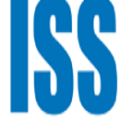We propose a new algorithm for joint dereverberation and blind source separation (DR-BSS). Our work builds upon the IRLMA-T framework that applies a unified filter combining dereverberation and separation. One drawback of this framework is that it requires several matrix inversions, an operation inherently costly and with potential stability issues. We leverage the recently introduced iterative source steering (ISS) updates to propose two algorithms mitigating this issue. Albeit derived from first principles, the first algorithm turns out to be a natural combination of weighted prediction error (WPE) dereverberation and ISS-based BSS, applied alternatingly. In this case, we manage to reduce the number of matrix inversion to only one per iteration and source. The second algorithm updates the ILRMA-T matrix using only sequential ISS updates requiring no matrix inversion at all. Its implementation is straightforward and memory efficient. Numerical experiments demonstrate that both methods achieve the same final performance as ILRMA-T in terms of several relevant objective metrics. In the important case of two sources, the number of iterations required is also similar.
翻译:我们建议采用新的算法,用于联合剥离和盲源分离(DR-BSS)。我们的工作以IRLMA-T框架为基础,这个框架应用了一个统一的过滤器,将皮革分离和分离结合起来。这个框架的一个缺点是,它需要若干矩阵反转,操作本身费用很高,并可能存在稳定性问题。我们利用最近引进的迭代源指导(ISS)更新,以提出缓解这一问题的两种算法。尽管从第一条原则中得出,但第一个算法是加权预测错误(WPE)脱位和以ISS为基础的BSS的自然组合。在这种情况下,我们设法将矩阵反转数减少到每个循环和源仅一个。第二个算法仅使用不要求任何矩阵反转的顺序国际空间站更新来更新ILRMA-T矩阵。它的实施是直接的,记忆效率很高。数字实验表明,两种方法在几个相关客观指标方面都取得了与ILMA-T相同的最后性能。在两个重要来源中,需要的转换次数也是相似的。


